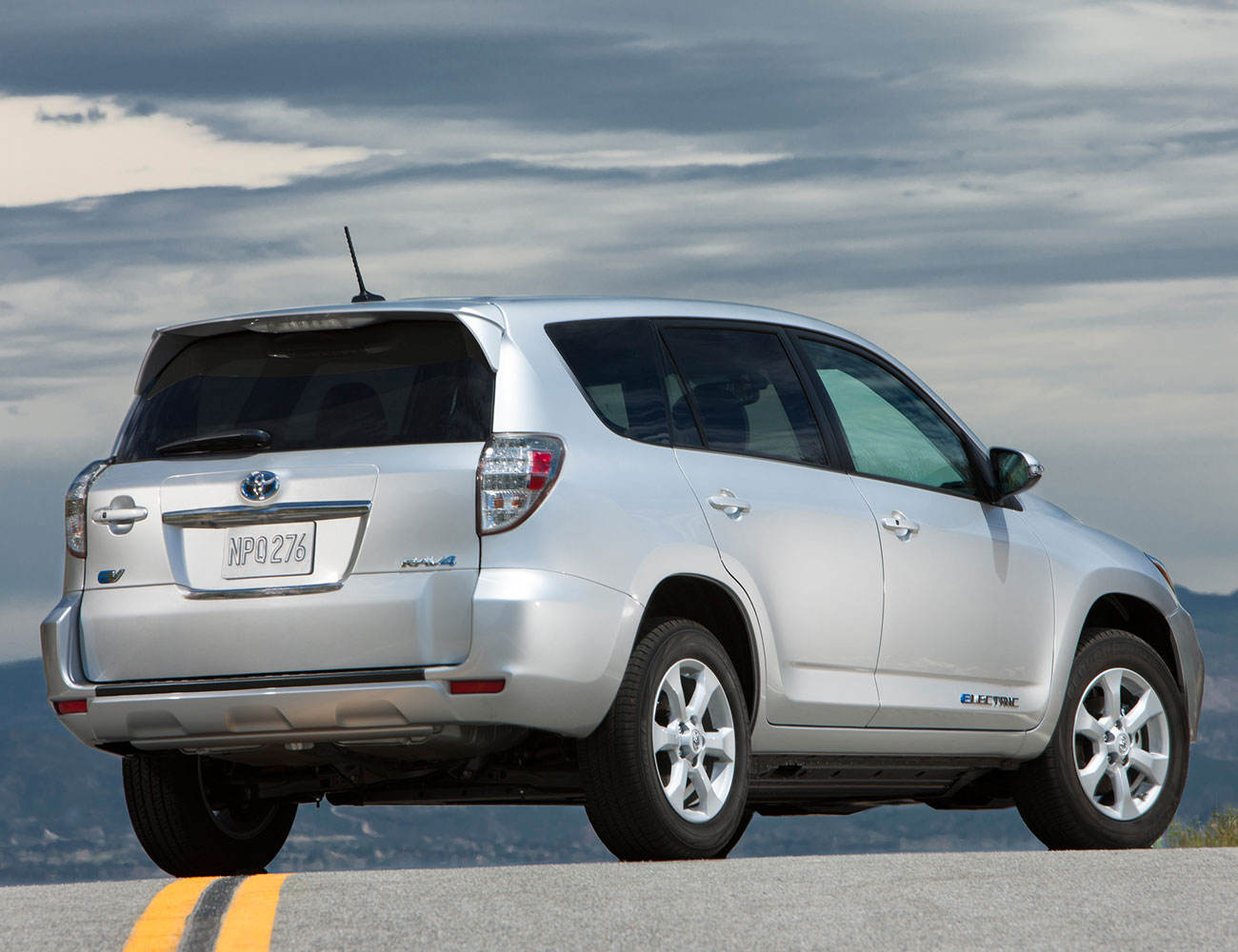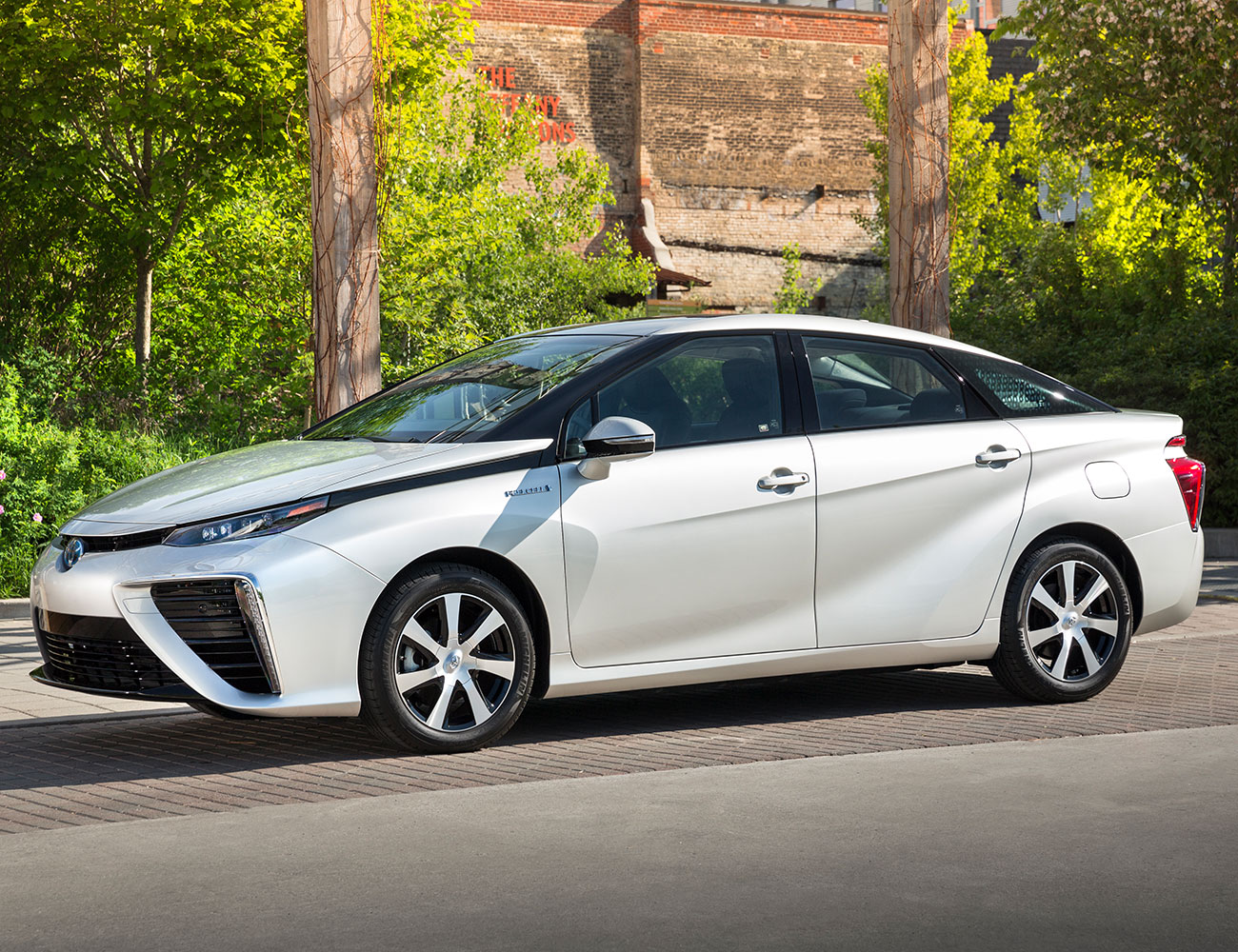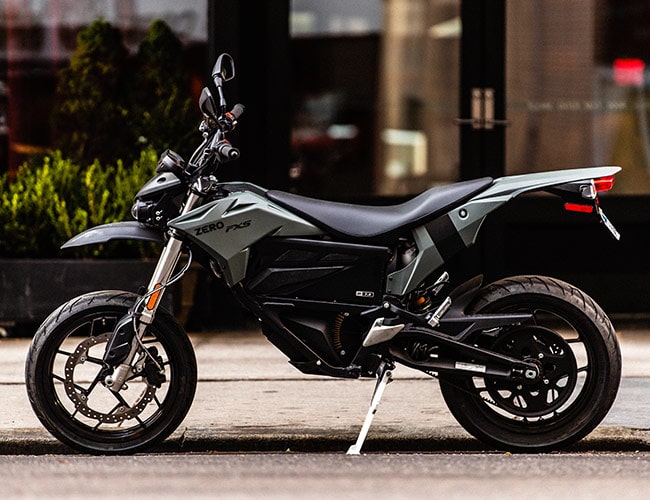With the debut of its hybrid-electric Prius, in 1997, Toyota spurred a movement toward automotive electrification that can be traced directly to modern EVs like the Tesla Model Y and Rivian R1T. But more than two decades after its groundbreaking hybrid, Toyota has fallen behind the movement it helped kickstart, with no full battery-electric vehicles on offer since dumping the Rav4 EV in 2014 — and none in the works. Instead, Toyota plans to stick to a range of hybrids and hydrogen fuel cell vehicles. Even its luxury division, Lexus, remains at the concept stage for full electrification while rivals Mercedes and BMW prepare to roll out full-electric production crossovers. Is Toyota simply ignoring the obvious electric future? Or is the Japanese manufacturer playing a long game by betting on hydrogen-electric technology?
Some Toyota skepticism about EVs may be warranted. Those cars have yet to prove profitable, particularly at the affordable end of the spectrum. (Development of all-new platforms doesn’t come cheap.) Battery tech and components remain expensive. Before tax subsidies, the cheapest competitive EVs — those with the features and range buyers demand — still run around $35K or more. Toyota is a value brand, and one could argue the value simply isn’t yet there for EVs compared to internal combustion cars. Other value-conscious brands planning bold EV initiatives, like Ford and VW, can offset loss leaders with massive sales of F-150 pickup trucks and Atlases.
Toyota still has a dominant market share. The Rav4 is the best-selling car in the U.S. outside of pickup trucks from Detroit’s Big Three; add the Camry, Corolla, Tacoma and Highlander, and Toyota boasts five of the top 15 bestselling cars in the U.S. Toyota isn’t watching its customers flee to expensive Teslas. Perhaps it can wait for EV demand to materialize.

Toyota RAV4 EV
For those who would argue Toyota has a moral imperative to move forward with electric vehicles given concerns over climate change, know that EVs are not a panacea. While they are significantly more efficient than gasoline vehicles and have zero tailpipe emissions, the batteries that power them require environmentally destructive mining for rare earth metals, and they draw power from the U.S. grid, only 17 percent of which is powered by renewables, which means EVs still boast a significant carbon footprint across their total product lifecycles. Despite what you may read on Tesla vanity plates, buying electric at the moment is more like an e-cigarette for carbon than going cold turkey.
Where Toyota is investing is hydrogen fuel cells. Japan is looking to showcase itself as a “hydrogen society” during the 2020 Olympics in Tokyo. Hydrogen offers some distinct advantages over battery electric. First, there’s no charging time as with a battery; you fill a car with hydrogen in a few minutes like you would gasoline. Next, there are no huge, cumbersome battery packs, which make it a more viable fuel source outside the automotive realm for planes, ships, work vehicles and more.
But hydrogen has substantial technological and logistical hurdles. It needs to be produced, for one. And once the hydrogen is created, it must be stored by compressing it, liquifying it, or through chemical alteration. If production happens off-site, the hydrogen also needs to be transported. Logistically, a wide-scale adoption of hydrogen would require massive infrastructure investment.

Toyota Mirai
And making hydrogen fuel cell cars affordable (let alone desirable) is a far more daunting challenge than for EVs. Toyota needs significant tax incentives to push the cost of fuel-cell-powered Mirai down to around $60,000. For the same price as a Tesla Model 3 Performance, you can get a dorky-looking Mirai with just 151 hp and and a modest 9.4-second 0-60 mph acceleration time. And a similar refueling time to gasoline-powered cars means very little when there’s only one hydrogen station in all of North America not located in California.
The future of electric mobility will be multifaceted. There will be battery electric vehicles. There will be hydrogen-powered vehicles. There will be a significant push toward more efficient mass transit. All automakers are dealing with the pressure to forge the future amid huge uncertainty, not to mention bold, headline-grabbing competition from upstarts like Tesla and Rivian. But maybe Toyota alone can afford to stay flexible, let others eat the costs, and allow the future play out as it will. But it’s a plan with huge inherent risk: that of being left behind.
The 2019 Zero FXs is one of the entry-level models in Zero Motorcycle’s all-new 2019 lineup. It is aimed at the city-dwelling rider and designed for quick commutes and short rides. Read the Story


